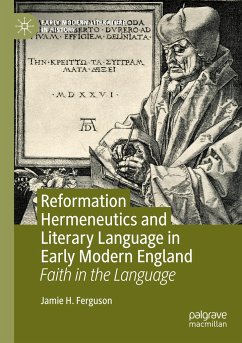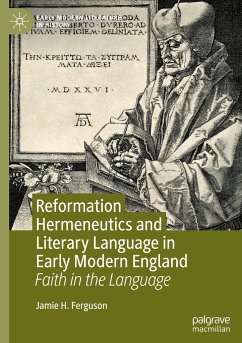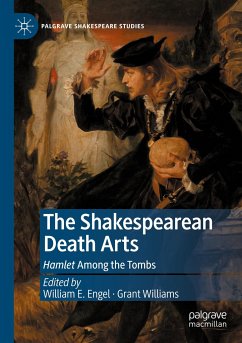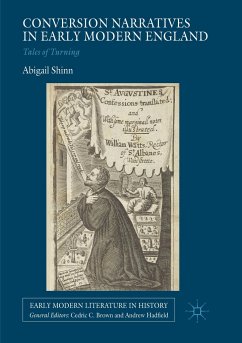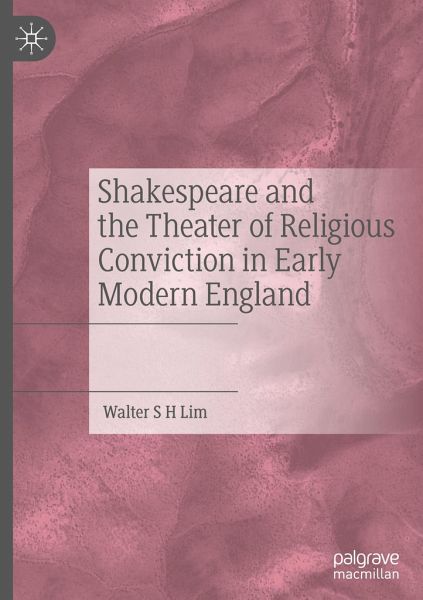
Shakespeare and the Theater of Religious Conviction in Early Modern England
Versandkostenfrei!
Versandfertig in 6-10 Tagen
91,99 €
inkl. MwSt.
Weitere Ausgaben:

PAYBACK Punkte
46 °P sammeln!
This book analyzes Shakespeare's use of biblical allusions and evocation of doctrinal topics in Hamlet, Measure for Measure, The Winter's Tale, Richard II, and The Merchant of Venice. It identifies references to theological and doctrinal commonplaces such as sin, grace, confession, damnation, and the Fall in these plays, affirming that Shakespeare's literary imagination is very much influenced by his familiarity with the Bible and also with matters of church doctrine. This theological and doctrinal subject matter also derives its significance from genres as diverse as travel narratives, sermon...
This book analyzes Shakespeare's use of biblical allusions and evocation of doctrinal topics in Hamlet, Measure for Measure, The Winter's Tale, Richard II, and The Merchant of Venice. It identifies references to theological and doctrinal commonplaces such as sin, grace, confession, damnation, and the Fall in these plays, affirming that Shakespeare's literary imagination is very much influenced by his familiarity with the Bible and also with matters of church doctrine. This theological and doctrinal subject matter also derives its significance from genres as diverse as travel narratives, sermons, political treatises, and royal proclamations. This study looks at how Shakespeare's deployment of religious topics interacts with ideas circulating via other cultural texts and genres in society. It also analyzes how religion enables Shakespeare's engagement with cultural debates and political developments in England: absolutism and law; radical political theory; morality and law; and conceptions of nationhood.




